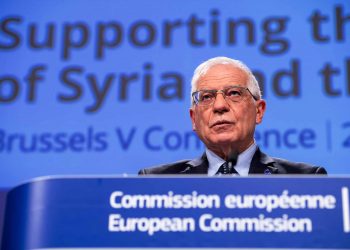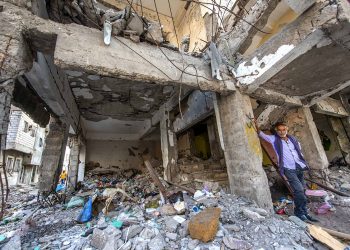The UN-backed International Atomic Energy Agency (IAEA) reached a temporary deal with Iran for nuclear programme international inspection to continue. The good news announced Director General Rafael Mariano Grossi at a press conference in Vienna on Sunday. The IAEA chief was speaking shortly after arriving from weekend talks in Tehran to mitigate plans to reduce cooperation this week.
Iran’s Parliament passed a law in December to partially suspend nuclear inspections if the United States did not lift sanctions imposed under the Trump administration. It goes into effect on Tuesday.
“We agreed that in view of the law, and in particular the provision that establishes limitations, we have reached a temporary bilateral technical understanding whereby the agency is going to continue its necessary verification and monitoring activities for a period of up to three months,” Mr. Grossi told journalists.
Less access for inspectors in Iran
The arrangement means IAEA inspectors will have less access than under the 2015 deal on Iran’s nuclear programme, known as the Joint Comprehensive Plan of Action. The number of inspectors will not change.
“We agreed that we are going to keep this understanding we reached under review constantly so if…we want to suspend it or extend it, this can be done,” said Mr. Grossi. “The hope of the IAEA has been to be able to stabilize a situation which was very unstable,” he added.
“And I think this technical understanding does it so that other political consultations at other levels can take place, and, most importantly, we can avoid a situation in which we would have been, in practical terms, flying blind.”
Iran to stop ‘snap’ nuclear checks
Tehran informed UN agency about its plan to end sweeping inspection powers given to the agency under the nuclear pact. USA and Tehran will have more time to seek a compromise. Iran was claiming that it will not reverse the measures unless the US fully complies with the 2015 deal first. Now Iran step back and gives Joe Biden the time to return the United States to the nuclear deal.
Last January: US-Iran War clouds are gathering and EU tries to balance reactions
“If others do not fulfil their obligations by Feb. 21, the government is obliged to suspend the voluntary implementation of the Additional Protocol,” Foreign Ministry spokesman Saeed Khatibzadeh said. “It does not mean ending all inspections by the U.N. nuclear watchdog…All these steps are reversible if the other party changes its path and honours its obligations,” he said, alluding to the United States.















